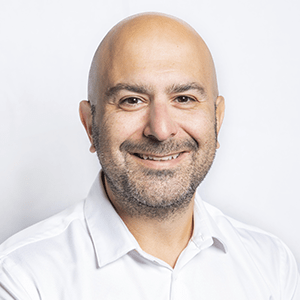1:30min

–
By Theo Charalambous
Deputy President, Optometry Australia
_________________________________________

I was recently invited to attend the Optometry Leaders Forum (OLF) in Ottawa, which explored the themes of Artificial Intelligence (AI) and Telehealth in optometry.
The two-day program brought together 110 international leaders in optometry to gain insights from innovative experts in technological development and participate in interactive workshops exploring the potential implications of AI upon our profession. Delegates were invited to consider how optometry will adopt AI, the potential risks of doing so and what key understandings about these technologies should be grasped by clinicians.
In the year prior to OLF 2024, the Canadian Association of Optometrists released a comprehensive discussion paper identifying three main areas where AI would impact the eye care industry by improving diagnostic and prognostic predictions, improving access to care and refining business predictions.
Keynote speakers
Keynote speakers at this year’s forum delivered intricate insights into how existing and emerging technologies are already initiating this new era in our profession.
Peter Jones, Health Industry Lead of Microsoft Canada, explored the emerging role of Dragon Ambient eXperience (DAX) in healthcare. DAX, a sophisticated ambient speech recognition technology, was developed by Nuance Communications, now a part of Microsoft, with the objective of enhancing consultation documentation workflows. This AI tool operates in real time during a consultation via use of a phone app, without the need for extra hardware, thus allowing the clinician to be present and focussed upon the patient, facilitating better interpersonal communication during history taking and examination. DAX leverages natural language processing algorithms to accurately capture and understand spoken language, including medical terminology and context-specific dialogue between healthcare providers and patients. Within optometry, DAX could be employed to improve the efficiency and accuracy of note taking, and subsequently may have a protective role for clinicians in medico-legal cases. Its application to documenting specific clinical procedures, such as a refraction outcome by an optometrist, requires further development. Obviously, the protection of personal data and informed consent are imperative considerations with the implementation of such AI tools.
Jeff Dunkel, CEO of Optain, previously Eyetelligence, informed industry leaders of the current AI products available on the market for optometry and those on the horizon. The company’s Assure software, the first eye care related AI platform to be registered by the TGA in 2020, utilises artificial intelligence to analyse retinal images for features of glaucoma, referrable diabetic retinopathy, and neovascular AMD. Through US investment, Optain has been propelled to further develop and commercialise its technologies internationally, including the use of retinal algorithmic AI technologies to screen for a broader range of ocular, neurological and systemic diseases.
Australia’s own Dr Zachary Tan MD, CMO from Optain and Ascertain, introduced the concept of Oculomics- the science of identifying biomarkers in the eye for the assessment of systemic health of a patient. The technology is being developed in the screening, diagnosis and monitoring of disease outside the ophthalmic scope, showing potential in Alzheimer’s, Parkinson’s, cardiovascular disease and more. Optain’s product was revealed, with a turnkey solution currently available in Australia, including a portable retinal camera and associated AI software.
Dr Dena Weitzman, FAAO, a graduate of the Indiana Optometry School and now director of Scientific Affairs at Digital Diagnostics, was invited to inform forum delegates about the importance of clinicians understanding the algorithm inputs behind AI, and accentuated that not all are created equal. Whilst some technologies employ large population data-driven algorithms to arrive at a particular diagnosis, other systems focus on identifying specific biomarkers or biological indicators associated with certain eye conditions or diseases. As optometrists will inevitably adopt a vital role of interpreting and explaining AI outputs, it is therefore crucial to appreciate that some results have more susceptibility to bias, and others can be more transparently linked to underlying processes. All AI generated results should be interpreted with appropriate clinical provide accurate and individualized diagnoses. She spoke about the importance of embracing novel technologies and displaying adaptability within our profession. She provided insights into the research and development, regulatory processes, and market considerations involved in releasing new AI applications. From the perspective of both a clinician and technology expert, Dr Weitzman was able to eloquently convey to delegates the importance of remaining educated, motivated and ethical in utilising AI to our advantage.
Final thoughts
Inspired by the robust discussions at OLF, I have returned home invigorated to help lead optometrists through this time of fast and multifaceted change in our profession and beyond. Optometry Australia is committed to guiding and informing members around the appropriate use of artificial intelligence, as is exemplified through work on our upcoming Position Statement, presentations regarding AI at OVC, ongoing work with the Australian Digital Health Agency (ADHA), and involvement in the Australian Alliance for Artificial Intelligence in Healthcare (AAAiH). Together, we can ensure that the technologies rapidly changing the landscape of our profession are harnessed to provide the best care to our patients.

–